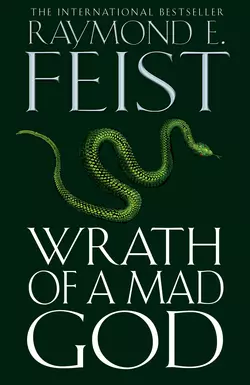Wrath of a Mad God

Raymond Feist
Тип: электронная книга
Жанр: Книги о приключениях
Язык: на английском языке
Стоимость: 766.24 ₽
Статус: В продаже
Издательство: HarperCollins
Дата публикации: 16.04.2024
Отзывы: Пока нет Добавить отзыв
О книге: The final book in The Darkwar series from the world-wide best-selling author of Magician.Wrath of a Mad God witnesses the cataclysmic end to one of Feist’s best-loved worlds.The Darkwar has fallen upon the worlds of Kelewan and Midkemia; a time of heroes, trials and destruction.Following their dangerous mission to the realm of the alien Dasati, Magnus and the other members of the Conclave must now find a way to use what they discovered to help save their own people from the wrath of a mad god.